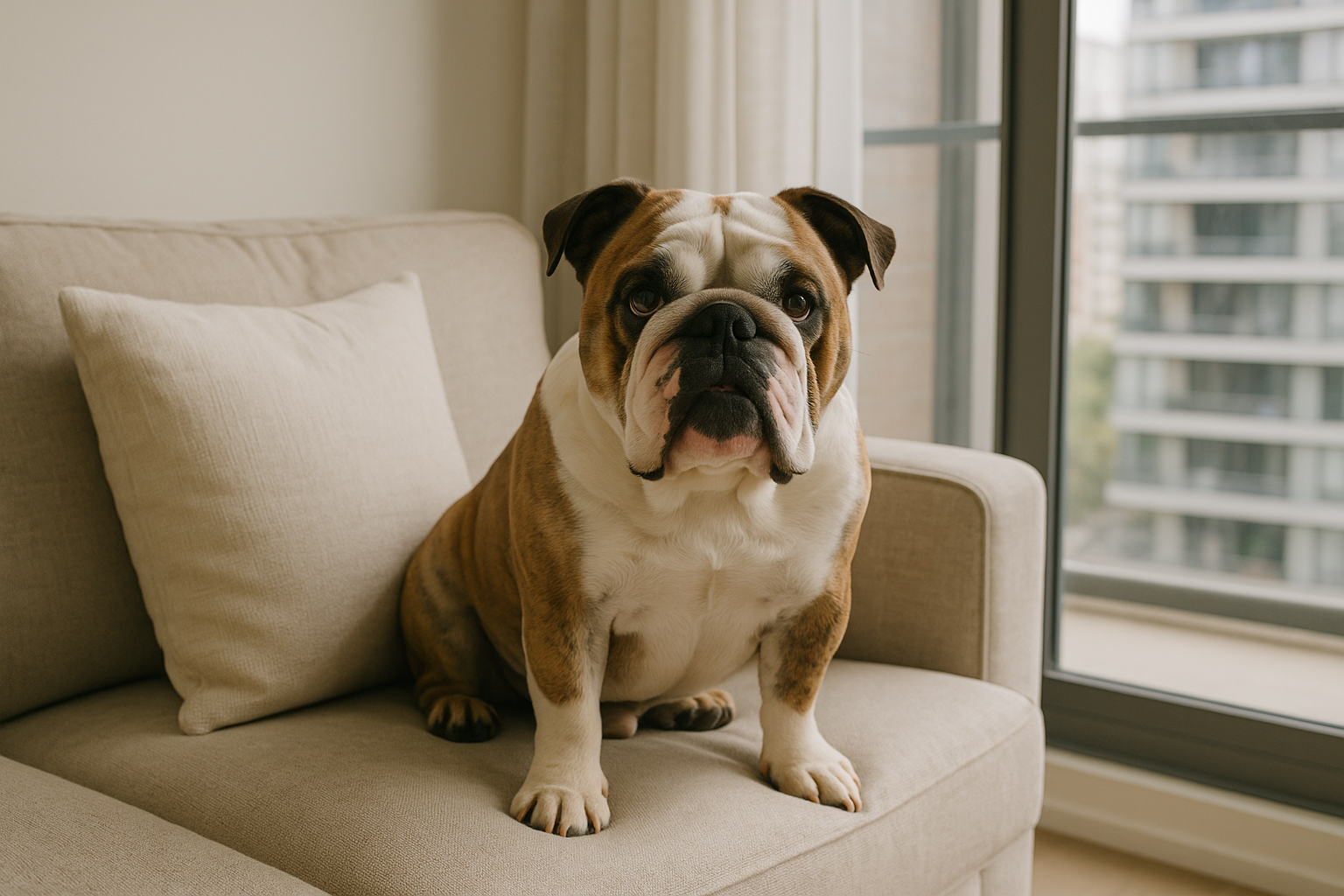There’s a common myth that medium-sized or stocky dogs like bulldogs can’t live in apartments. However, this belief is far from true. In fact, bulldogs are one of the most suitable breeds for living in small spaces, as long as they’re provided with proper care and a balanced routine that meets their physical, emotional, and social needs. Their calm temperament, low energy levels, and affectionate nature make them excellent companions for urban life.
One of the key factors that make bulldogs ideal for apartment living is their moderate energy level. Unlike other breeds that need to run long distances or engage in intense exercise, bulldogs are content with short walks and controlled playtime. They don’t require a large yard or constant access to open space to feel good. In fact, they often enjoy resting for long stretches of the day—provided they have companionship and some mental stimulation in their environment.
But being calm doesn’t mean they can stay cooped up all the time. It’s essential to establish a daily walking routine, at least twice a day, so they can walk, sniff, interact with their environment, and relieve themselves outside the home. These outings are important not only for their physical health but also for their mental well-being. A bulldog that doesn’t get out enough may become bored, anxious, or develop destructive behaviors like chewing furniture or excessive barking.
Environmental control is a crucial point when living in an apartment. Bulldogs are very sensitive to extreme temperatures, especially heat, due to their brachycephalic anatomy. Their facial structure makes it harder for them to breathe when it’s hot or when they are too active. In the summer, it’s important to keep the apartment cool, avoid going out during the hottest hours of the day, and always provide fresh water. If the apartment lacks good ventilation, fans or air conditioning may be necessary to prevent heatstroke. In winter, if the floors are very cold, it’s a good idea to provide blankets or elevated beds to keep them off freezing surfaces.
Another important aspect is hygiene and indoor training. Living in a small space means your bulldog needs to be well-behaved so as not to bother neighbors or other residents. Fortunately, bulldogs are not particularly noisy dogs, but they can develop territorial behavior if not properly socialized. That’s why it’s crucial to teach clear rules from puppyhood (or from the moment they arrive home): not barking at the doorbell, not scratching doors, respecting boundaries, and learning to wait calmly when left alone.
House training is also essential. If you live in a building without quick street access or can’t take them out at certain times, you can teach your bulldog to use pee pads or a designated area on a balcony or terrace. These areas must always be clean and should not replace regular outdoor walks, since contact with the outside world is vital for their emotional balance.
Apartment living also means your bulldog must interact well with visitors, neighbors, and possibly other animals in the building. That’s why early and positive socialization is key. Getting them used to different sounds, people, elevator noises, or hallway activity will help them stay calmer in new situations. Positive reinforcement—rewarding good behavior—is the best way to shape their conduct without needing to resort to punishment.
In terms of physical space, bulldogs don’t need much to be comfortable, but they should have their own spot in the home. A soft bed in a quiet area, safe chew toys, constant access to clean water, and—if possible—a window to look out of can make a big difference in their quality of life. It’s also recommended to include mental enrichment routines, like puzzle toys, scent games, or food dispensers, to keep them entertained even when they’re home alone.
Additionally, bulldogs don’t tolerate long periods of solitude very well. They’re very attached to their humans and can suffer separation anxiety if left alone for too long. If your daily routine involves long absences, it’s a good idea to have some support: a dog walker, a family member who can visit, or even dog daycare services are all valid options to ensure your bulldog doesn’t spend the entire day unstimulated or lonely.
Veterinary care and hygiene should not be overlooked, even in an apartment setting. Bulldogs are prone to skin issues, infections in their folds, allergies, and obesity. Keeping their vaccination schedule up to date, giving regular baths, cleaning their ears and skin folds, and monitoring their diet to prevent weight gain are all essential to keeping them healthy and happy.
In conclusion, yes—a bulldog can absolutely live in an apartment. Their calm personality, moderate exercise needs, and sociable nature make them excellent companions for urban living. However, they do require a well-structured routine, daily companionship, regular walks, and consistent care. With attention, love, and commitment, a bulldog can adapt to apartment life better than many other breeds—and fill your home with tenderness, calm, and joy.
